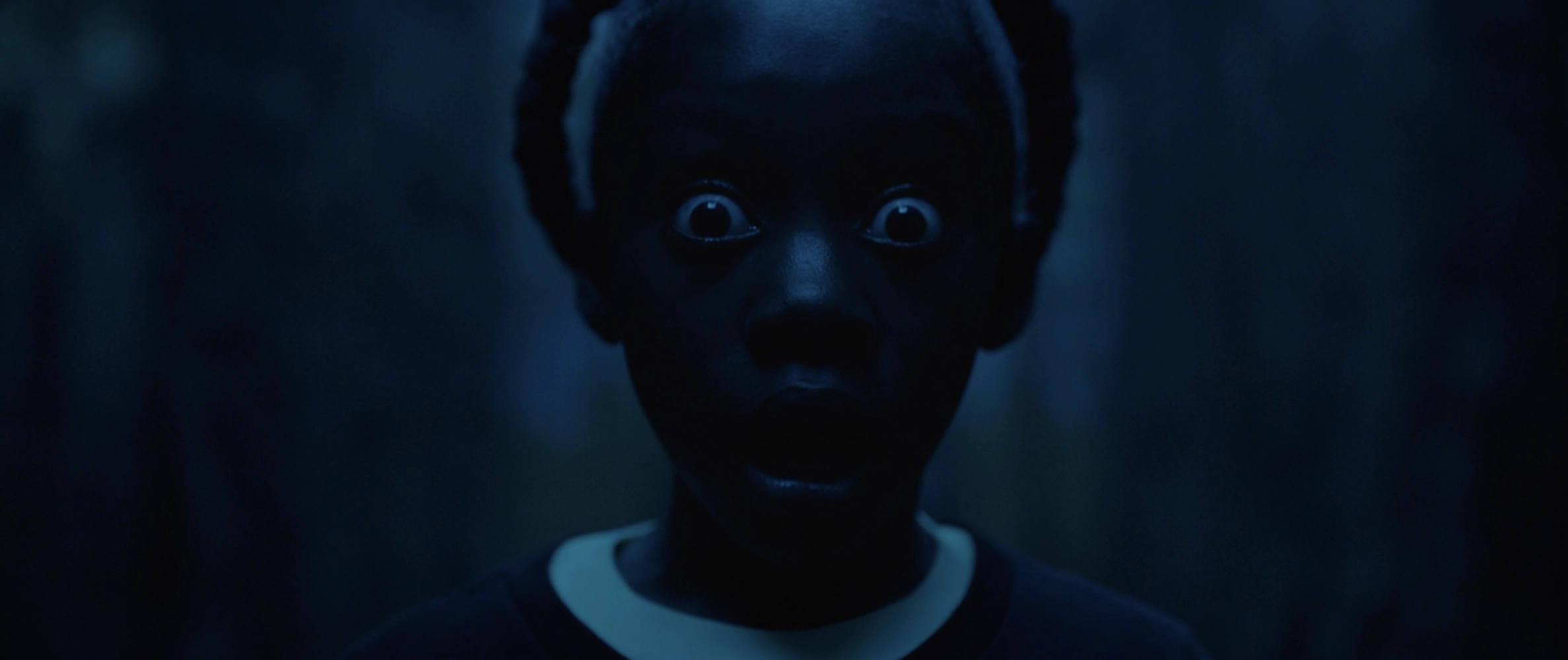There’s something irresistible about the clamor a movie like Us creates, like a distant siren, it lures you not just to watch, but to theorize, to fret, to explain yourself (or explain away the film’s shortcomings with a gesture at its “genius”). Jordan Peele’s sophomore feature has become one of those post-screening litmus tests: Did you see the twist coming? Did you catch all the “clues”? Congratulations, you’re either too clever or, more likely, you’re scrambling in the dark just as Peele wanted. Us is that rare horror film which, above all, wants to be iconic, and while it achieves a kind of feverish originality, it also proves that cleverness can be both a blessing and a curse.
There is, to be sure, pleasure in being flummoxed. The movie’s final rug-pull, which I admit I did not foresee, delivers a half-star’s worth of delight by itself, not for its neatness but for its bravado. But when the smoke clears, and when you wake the next morning still chasing the logic behind the mirroring, the rabbit-warren science fiction, the allegory about neglected souls, and the chains of hands stretching across America…it’s hard not to wonder if Peele the conjurer has merely pulled a disappearing act with meaning. Or, perhaps, if he simply became mesmerized by the mirrored funhouse of his own invention and forgot the exits.
Yet, to borrow a phrase from an earlier era of genre film, it is a damn fun movie. Peele’s gift for the frantic, the jarring, the high note of nervous laughter just as the knife comes down, has only sharpened. The technical execution is, let’s not mince words, fabulous. Michael Abels’s score is a shock to the nervous system, cacophonous and sly, as though Bernard Herrmann had been let loose with Kanye’s soundboard. The cinematography understands the blackness of night, not just as empty gloom but as a stage for the uncanny.
And there’s Lupita Nyong’o, my god, Lupita! It is easy, almost shameful, to forget the bravura talent of an actress who graces too few films, and yet Us plays like a duel between two Lupitas: as haunted, fragile Adelaide, and as Red, the wheezing, staccato demon whose voice lingers in your head like the last rattle in a ghost’s throat. Nyong’o manages the impossible, she genesises two wholly distinct creatures from posture alone, never mind her shifting registers of terror and fury. Her opening monologue as Red is a horror aria; she makes you pity and shrink away from her in the same moment. She earns every accolade, and should be earning more.
It’s invidious to compare Us to Get Out, but then the film invites it, at times, it seems to dare you. What Peele managed in Get Out was a kind of miraculous horror chess: thrilling set-pieces, social satire, and genre feints that never collapsed into cliché or blunt metaphor. Here, for every smart aside or slick visual motif, the script doubles back on itself, to the point that the pursuit of “depth” chokes off the pulse. The Tethered are a brilliant conceit, but the longer you dwell in the tunnels under Santa Cruz, the more the metaphor falters. Unlike Chris from Get Out, these characters too often make the wrong horror-movie choices, back into the house, back into the darkness, not because it’s clever, but because the plot demands the wheels keep spinning. As the film grows in scope (and body count), its allegory does the opposite, thinning like taffy stretched to covering too much existential ground.
Still, Us can be exhilaratingly ghoulish, and Peele’s eye for cathartic set-pieces is distinctly advanced here. An ambush staged in a modernist show-home, soaked in garish light and satirical violence, is as much fun as a slasher movie can legally be, and more than a little funny. Even Tim Heidecker’s performance, which some have called revelatory, walks a high-wire from lampoon to brutality (though, frankly, his marital subplot is a chore best left to the recycling bin of horror’s side-characters-who-bitch-until-they-die). Elisabeth Moss, all simmering lunacy, deserves honorable mention for making her brief, bloody scenes count.
There’s no shame in being bested by one’s own ambitions, indeed, Peele’s thirst to outdo himself is what marks him as a director to be reckoned with, not just an artful horror enthusiast. But sometimes, the higher you reach, the harder it is to spot where you dropped the thread.
See Us for the visceral charge—for the staging, the howling score—and, above all, for Nyong’o’s two-fisted performance. Just don’t expect to find the exit from the maze when the credits roll, no matter how many clues you’ve collected. The film is, in that way, a fitting metaphor for Peele’s new place in modern cinema: gifted, restless, sometimes lost in the dark, but always worth following—if only for the thrill of what he’ll attempt next.


